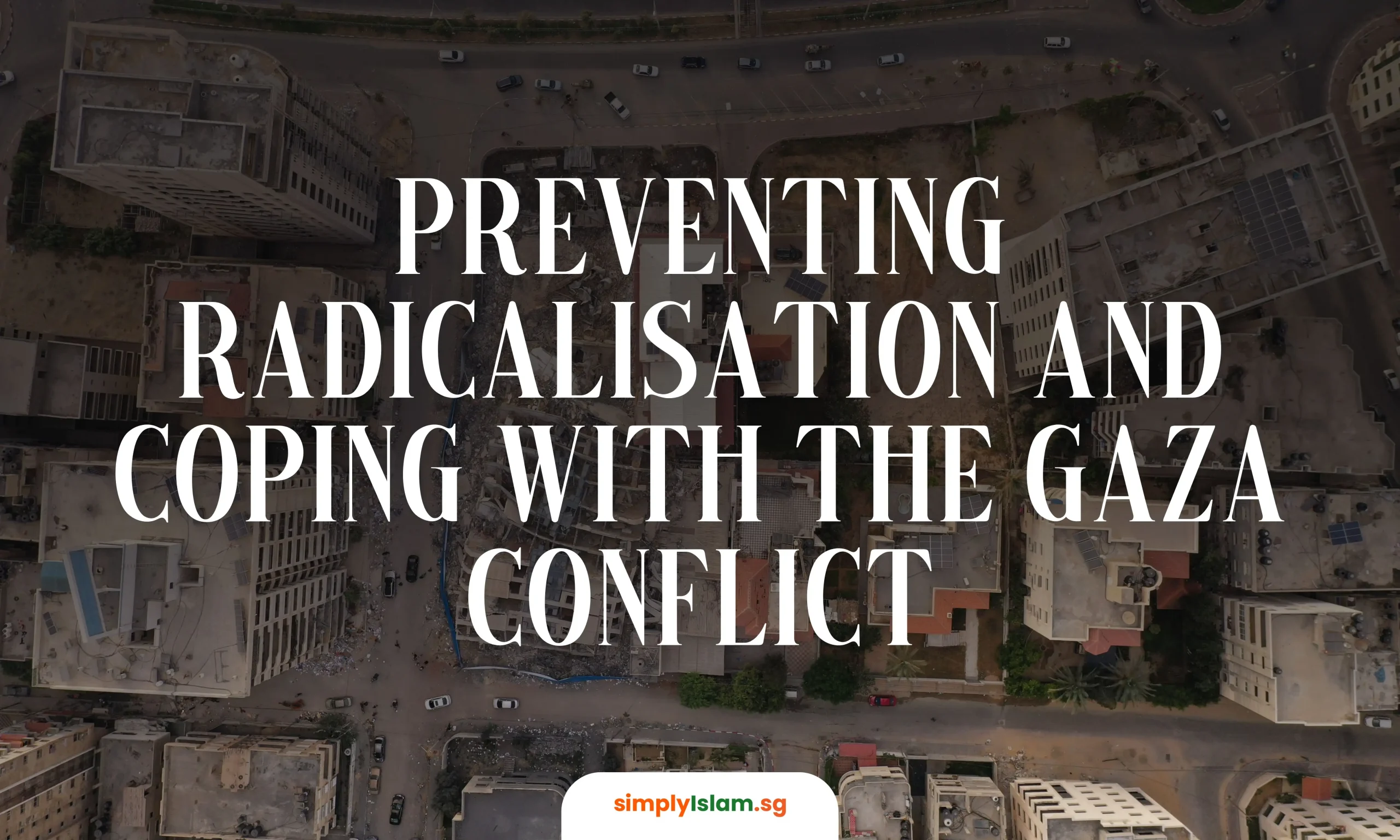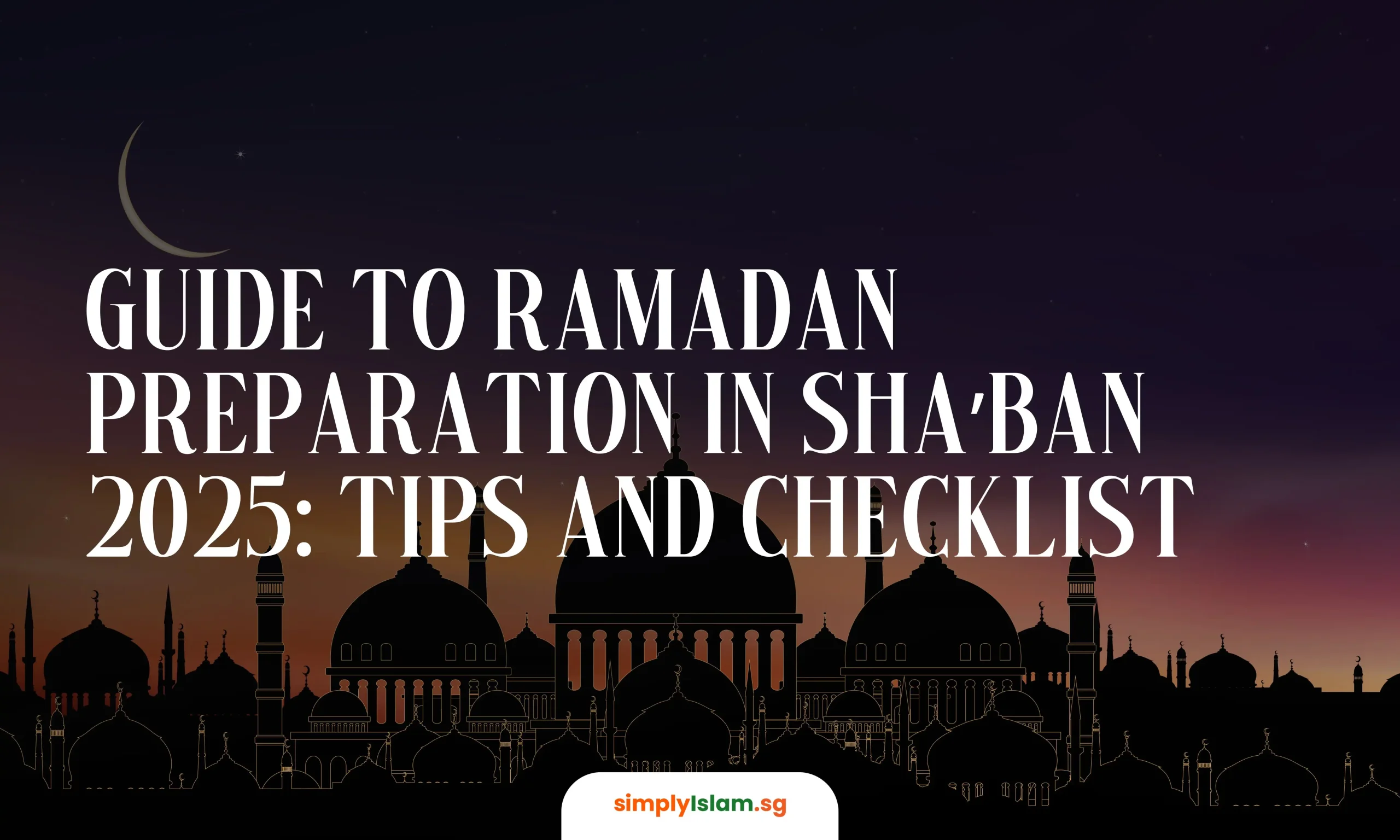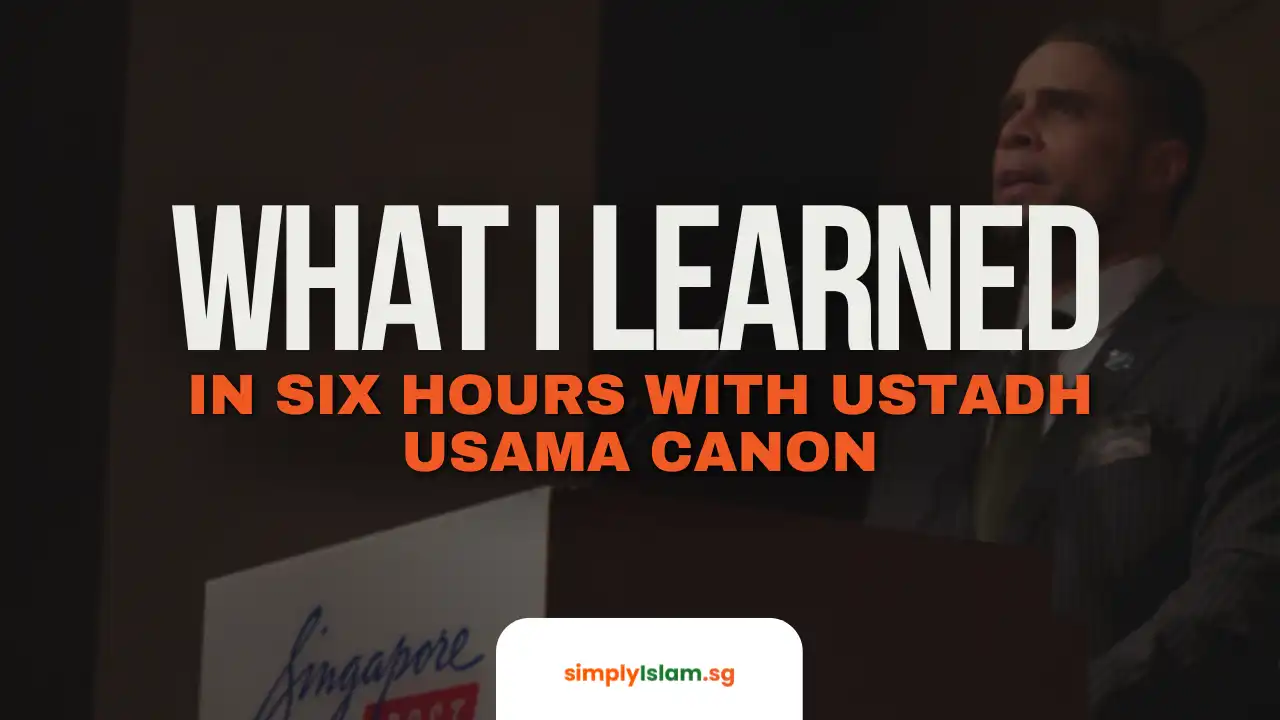

Ramadan is coming soon, and you’re excited to regain your spiritual strength and experience yet another enlightening moment in this Holy Month…only to find out that you’re unable to fast. You’re down in the dumps and not sure what to do to maximise your quality time in Ramadan when you can’t do the one thing you’re supposed to do – observe your fast.
As we all know, the act of fasting is simply meant to remind Muslims of the less fortunate who do not even have much to break their fasts, and to reinforce the need to be thankful. However, if you can’t fast in Ramadan, what else is there to do?
Don’t worry, as there are many kinds of Sunnah acts you can definitely cultivate even if you can’t do the number one thing, observing your fast! However, before we dive deep into the five things you can do, let’s educate ourselves on the types of people who are exempted from fasting.
Who’s Exempted from Fasting in Ramadan?
You might be thinking that only women who are on menstruation are the only ones who are exempted from observing their fasts, but in reality, there are many groups of people who are exempted. This is a blessed Sign of Allah’s Mercy towards His servants, SubhanAllah. He doesn’t impose such Sacred Law on His servants with extreme rigidity without considering their circumstances and conditions. We should be thankful, Alhamdulillah. Let us look at the types of people who are exempted!
1. Children who have not reached puberty yet
Children who have not reached puberty are exempted from fasting, but they are encouraged to learn to observe their fasts at a young age to slowly transition from practice to full on application once they reach puberty. If you’re a parent and you would like your child to fast along with you, it is essential to listen to their needs at the same time. If they are truly hungry or thirsty to the point they would cry or throw a tantrum, please prioritise their needs and try again another day.
2. The elderly
Due to their body changes and old age, the elderly are more susceptible to high risk illnesses if their needs are not taken care of, Na’udhubillah. Especially those who are bedridden, it is encouraged for them to prioritise their health and fuel themselves with food and water if it makes them feel better.
3. People who are physically or mentally incapable of fasting
People who are ill or mentally incapable of fasting are also exempted from fasting. If you are afflicted with severe illness that could jeopardise your health, or worse, your life, it is best to exempt yourself from fasting.
4. Pregnant women and breastfeeding mothers
If you’re pregnant and you’re worried about your health or your child’s health, it is better for you to exempt yourself from fasting as you and your child’s health are of utmost importance. Especially if you are a breastfeeding mother and you see a noticeable decrease in your milk supply, it’s also advised for you to exempt yourself from fasting to keep supplying milk to your little one.
5. Travelers
Travelers in general have a leeway from observing their fasts as they could be consuming a lot of energy and time on the road traveling from one destination to another. To keep their energy in check to resume their travel, it is best for them to exempt themselves from fasting.
6. Women who are on menstruation
Last but not least, one of the most common reasons why women don’t usually observe their fasts is due to menstruation. Since they are in major hadath and are losing a lot of blood, they are exempted from fasting.
As one of the five pillars, or duties, of Islam, fasting during the month of Ramadan is mandatory for all healthy adult Muslims. However, it is important to educate ourselves about the types of people who are exempted from fasting and to truly know the essentials of fasting in the month of Ramadan. To further study about the Islamic essentials like this, you could take up various physical or online Islamic courses to make you a better and a more well-informed Muslim, InshaAllah.
5 Things You Can Do When You Cannot Fast
Do not worry yourself too much if you cannot do the things many Muslims do in the month of Ramadan! Of course, it’s sad to be missing out on a lot, but it doesn’t mean that you cannot partake in the spirit of Ramadan in other ways. Let’s look at the five good deeds you can still do to make you unstoppable during Ramadan!

1. Recite Abundant of Adhkar
If you can’t participate in Taraweeh or fasting, no problem! This is the time for you to recite essential adhkar in abundance, constantly engaging in the remembrance of Allah the Merciful and to truly contemplate the meaning of each dhikr.
It is important to be mindful when you recite dhikr to truly maximise the benefits and merits of each utterance, as well as glorifying on the Attributes of Allah Almighty, SubhanAllah. It might be a small gesture, but the impact it has on a person’s heart, mind and soul is immeasurable! Get your dhikr counter ready and recite essential adhkar in the month of Ramadan. Here are a few dhikr applications you can try out to practice it during the Holy Month:
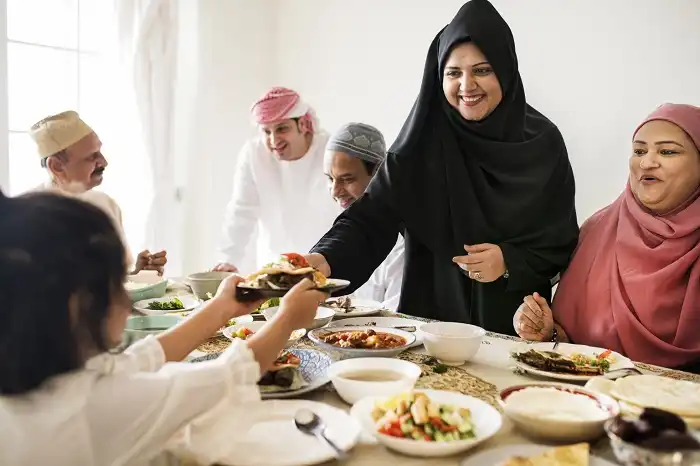
2. Prepare Food for Others Who Fast
If you can’t observe your fast, it is the time of the month to take advantage and put your cooking skills to good use! Helping those who fast in relieving their hunger and quenching their thirst is indeed a noble deed, and your help definitely matters to them.
Zaid bin Khalid Al-Juhani narrated that:
The Messenger of Allah said: “Whoever provides the food for a fasting person to break his fast with, then for him is the same reward as his (the fasting person’s), without anything being diminished from the reward of the fasting person.” [Jami’ At-Tirmidhi]
From the hadith aforementioned above, the Prophet, Peace and Blessings be upon him reiterated that the one preparing food for people who fast gains the SAME REWARD as those who observe fasting! SubhanAllah, the Mercy of Allah Almighty is limitless and it shows that your help matters.
If you would like to get some ideas or inspiration on healthy Ramadan meal plans, explore more by clicking on the links below:
- 30-Day Ramadan Meal and Fitness Plan
- A Ramadan Meal Plan for a Week of Delicious and Nourishing Meals

3. Give Charity
If you can’t fast, you can definitely give charity to those who need it most. Muslims are encouraged to give sadaqah in the month of Ramadan, as it draws us closer not only to Allah Almighty, but also to the community and families who are in destitute, SubhanAllah.
Just imagine how many people would benefit from the money and material gifts you give in the month of Ramadan! Let’s spread the love and share our belongings with others who need it more than we do during Ramadan. May Allah grant you His Mercy and Blessings from the charitable deeds you do, Ameen.
Abu Hurairah (May Allah be pleased with him) reported:
The Messenger of Allah (ﷺ) said, “When a man dies, his deeds come to an end except for three things: Sadaqah Jariyah (ceaseless charity); a knowledge which is beneficial, or a virtuous descendant who prays for him (for the deceased).” [Muslim]
If you’re in Singapore and would like to support over 400 needy families in terms of financial aid and food supply, you can seize the chance this Ramadan. Don’t delay in charity, as it stands in the way of calamity!
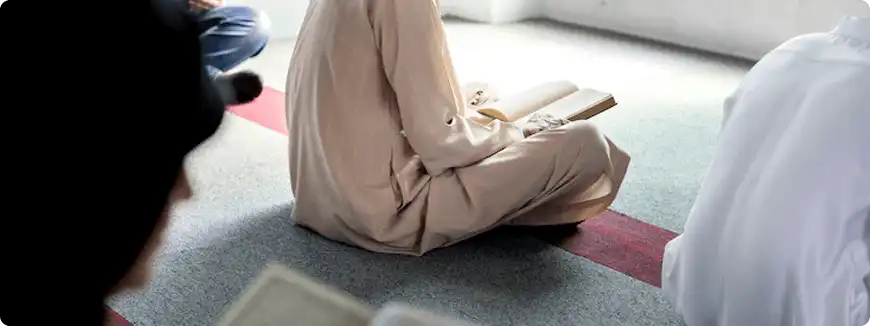
4. Equip Yourself with Islamic Knowledge and Attend Islamic Courses
Besides fasting, what you can do in the month of Ramadan is to fulfil your obligations as a Muslim; seeking knowledge. As you are aware by the abundance of Quranic verses and ahadith on knowledge seeking, it is undeniably one of the most important deeds and duties for every Muslim.
To show you how important knowledge is, even the first revelation of Quranic verse that has descended on the face of the Earth to our beloved Prophet Muhammad, Peace and Blessings be upon him, was on knowledge.
Besides that, Allah Almighty has mentioned in the Quran about the difference in ranks between knowledgeable people and the commoners as well.
يَـٰٓأَيُّهَا ٱلَّذِينَ ءَامَنُوٓا۟ إِذَا قِيلَ لَكُمْ تَفَسَّحُوا۟ فِى ٱلْمَجَـٰلِسِ فَٱفْسَحُوا۟ يَفْسَحِ ٱللَّهُ لَكُمْ ۖ وَإِذَا قِيلَ ٱنشُزُوا۟ فَٱنشُزُوا۟ يَرْفَعِ ٱللَّهُ ٱلَّذِينَ ءَامَنُوا۟ مِنكُمْ وَٱلَّذِينَ أُوتُوا۟ ٱلْعِلْمَ دَرَجَـٰتٍ ۚ وَٱللَّهُ بِمَا تَعْمَلُونَ خَبِيرٌ
“O believers! When you are told to make room in gatherings, then do so. Allah will make room for you ˹in His grace˺. And if you are told to rise, then do so. Allah will elevate those of you who are faithful, and ˹raise˺ those gifted with knowledge in rank. And Allah is All-Aware of what you do.” [Quran 58:11]
Hence, there is definitely no harm in utilising the time in the month of Ramadan to seek knowledge. If you are not an avid reader, this is the month when you can make a list of books you would like to read to enhance your knowledge on Islam and other things that make you more well-informed and well-educated, InshaAllah. As the old saying goes, knowledge is power!
If you’re not fond of books and would like to attend Islamic courses instead, then there are definitely various options for you. You can either attend physical Islamic courses nearby if you’re in Singapore, or attend online Islamic lectures conducted by world-class Islamic scholars of esteemed reputation. The journey to a thousand steps begins with a first one, and yours is today.
5. Send Salutations to our beloved Prophet Muhammad ﷺ
One of the ways you can truly reap the rewards from the deeds you commit in the month of Ramadan is by sending salutations to none other than our beloved Prophet ﷺ. We will not only gain the Shafa’ah or intercession of our Prophet ﷺ in the Hereafter, but it also brings us a sense of peace and tranquility when we recite Salawat, InshaAllah.
It was narrated from Abu Hurairah that:
The Prophet (ﷺ) said: “Whoever sends salah upon me once, Allah (SWT) will send salah upon him tenfold.” [Sunan An-Nasa’i]
From the hadith above, the Prophet ﷺ has mentioned about the immeasurable rewards of Salawat and how important it is for us to send salutations, SubhanAllah. May Allah Almighty grant us all His Blessings and Mercy, InshaAllah.
If you can’t fast in the month of Ramadan, it is definitely not the end of the world. Don’t cry if you are not able to participate in observing fast, Taraweeh prayers and such, but be thankful that you can STILL participate in other good deeds and still reap similar benefits and rewards, InshaAllah. May Allah make this coming Ramadan a memorable one for all of us, and Salaam Ramadan to you.

